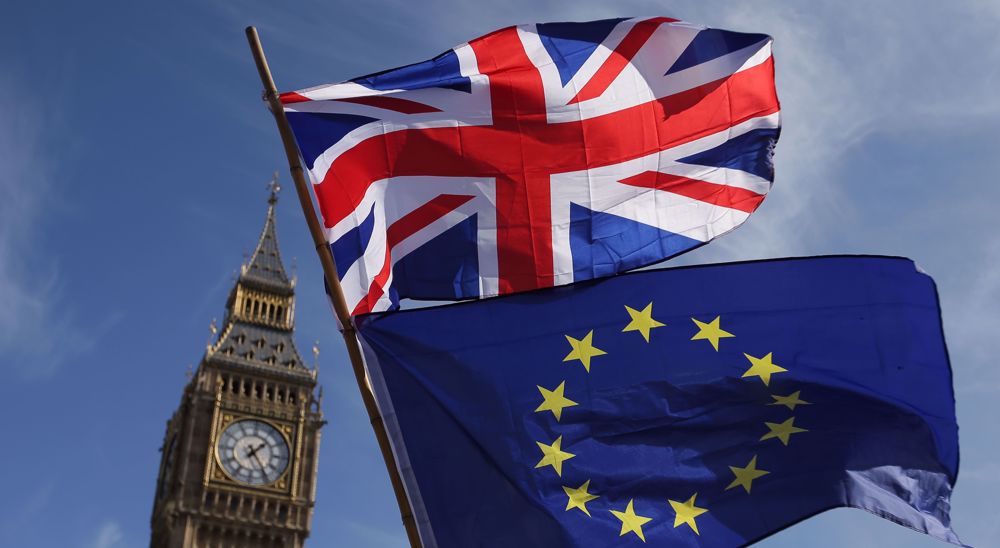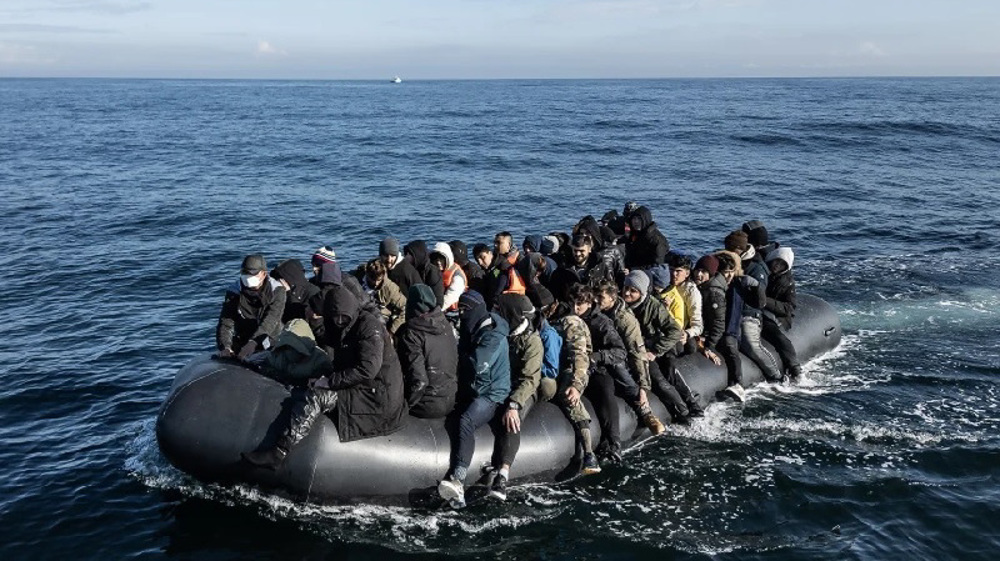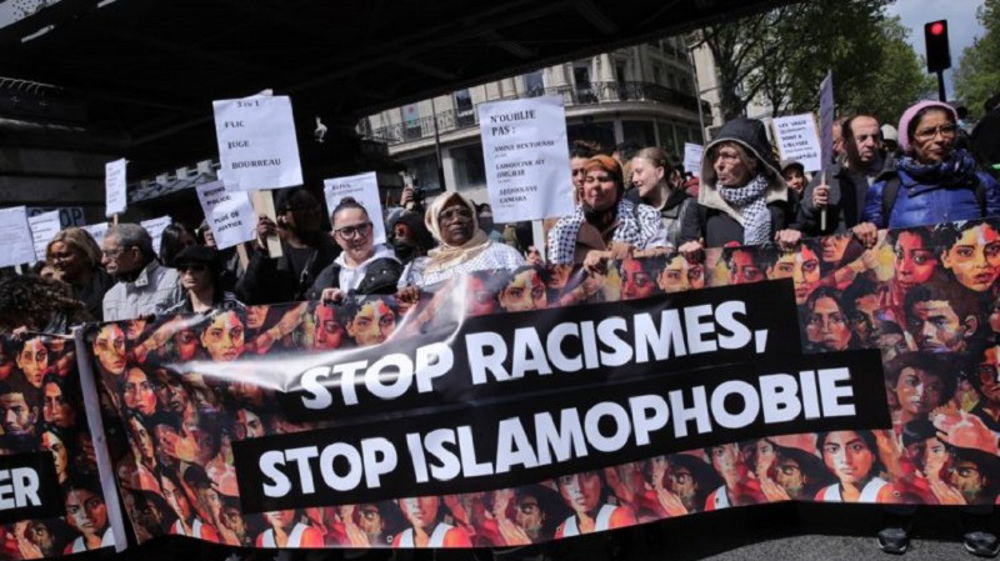Prospect of tougher economic hardships ahead: EU
Whereas there are no exceptions when it comes to the COVID-19 virus having a devastating effect on the people and economies of the world, for one continent, Europe, the prospect of individual nations entering a second lockdown will create a heavy burden on the governments of each country, as well as the EU, to pick up the pieces left over from shattered economies.
However, recent reports that a vaccination may be on the table could come as too little too late, even if the drug is rolled out in December as promised, as the damage has already been done. In the UK for example, the Deputy Chief Medical Officer has stated that the virus is too far along the second wave to be stopped this time round.
Frankly, we're in the middle of the second wave, and I don't see the vaccine making any difference for the wave we are now in. I'm hopeful that it may prevent future waves, but this one we have to battle through to the end, without a vaccine.
Jonathan Van-Tam, UK Deputy Chief Medical Officer
Second lockdown woes
It seems that there are three main issues when it comes to dealing with the notion of a second lockdown across major towns and cities across Europe.
The first and most unbelievable issue is the lack of government preparation. Although all have been through it once, it seems that major infrastructures are still not ready for a second wave, with schools, universities and hospitals all left in the dark as to what may happen.
Secondly, there is the real problem of having a weakened economy to deal with the virus. During the first wave, major European economies took a hit, with the likes of the UK seeing the worse hit, with a 25% drop in their GDP. The rest of Europe saw an overall decline of around 9 to 12% on average, hence a second wave will mean less spending power in fighting the virus than first time around.
And finally, there is the notion of European Unrest, partly because the Center is not holding, with extreme poles emerging over the handling of the virus. Already, most major European nations have seen protests against the measures being taken by governments.
Can the EU, having already dispensed €540 billion Euro for businesses, afford another such bailout? If so will the people of Europe be expected to pay the sum back in taxes?
COVID-19 Impact on France
France, much like the rest of Europe, has been no stranger to the devastating impact COVID-19 with the country seeing 1.9 2 million people infected and over 43,000 deaths, at the time of writing; a number that will no doubt rise as the second wave of the pandemic sweeps across Europe.
France was one of the first nations in Europe to enter a lockdown at the start of the year, with economic costs for the country amounting to billions of euros as bars, restaurants, leisure facilities, and more closed down, putting 15% of the total 220,000 registered hospitality companies in the country at risk of closing permanently.
This will of course come at the cost of hundreds of thousands of jobs, with France 24 News stating that the figures may be as high as 250,000 people.
The French government has tried to assist by providing various sources of economic assistance to small businesses, such as cafes, being able to apply for solidarity grants of up to 10,000 euros.
Virus has set back the French GDP by 13.8%
There's also a furlough scheme, which offers up to 100% of salaries planned up to the end of December, as well as a series of government backed loans, but to date, the cost of the virus has set back the French GDP by 13.8% a figure that puts a dent in the side of Macrons budget.
But as the second wave does its damage, the French government have realised that there's no choice but to introduce a second full lockdown. Something that the French Prime Minister, John Castex, has stated will initially last 15 days, but could increase.
This morning with the president, we had decided to maintain the lockdown for at least the next 15 days. The businesses closed due to the lockdown will stay closed for 15 more days.
Prime Minister, John Castex,
For France, the harsh reality of a recession is on the cards as the second lockdown will no doubt be a painful event during the cold winter months, and is something that the UN Secretary General, Antonio Guterres, has warned may be a factor for all nations to consider.
There is no doubt that much like the United States, the European central reserves have had to take immediate action to fund some of the most under pressure institutions.
For a start €37 Billion Euro has had to be redirected from the budget to support struggling healthcare systems, small and medium sized businesses, and labour markets via a scheme called the Coronavirus Investment Initiative.
Add to this a further €28 Billion Euros designed to be distributed to structural funds. This is primarily designed to tackle major crisis response situations across the EU, which according the EU Commission, include grants towards Regional Development, Social Funds, Cohesion Funds, Agriculture, Maritime and Fisheries.
Furthermore, up to €800 Million has been redirected from the EU Solidarity fund, directed at assisting the member states most severely hit by the virus. This is also part of the adaptation of EU rules set by Brussels which will allow member states to transfer money between funds to meet their needs, showing at least just how flexible the EU has been in dealing with the virus.
COVID impact on UK economy
One of the worst hit nations in terms of figures and the economy at the hands of the COVID-19 virus is Britain, which at the time of writing, the has seen 2 million infections, with a daily infection rate of over 27,000 per day, appearing to be the norm in the second wave. And so far, has tragically seen over 51,000 people lose their lives to the virus.
However, It's the economic impact of the virus that's hit Britain harder than some. In fact, for the country seeing the biggest hit to its GDP, compared to other leading global economies, with a country sing a brutal reduction of around 25%, something that along with Brexit has essentially brought the UK Treasury to its knees.
Retail and leisure sector hardest hit
One of the biggest hit industries in Britain is a retail and leisure sector with a second lockdown. Once again, causing bars, restaurants, cafes and cinemas to break into a very cold sweat, that will no doubt leave many business owners facing a very uncomfortable Christmas ahead, and an even worse New Year, as Britain comes crashing out of the EU.
It's the small businesses, the high street its the one man band that are most at risk from the second lockdown and that is why it's vitally important. The government supports these businesses so that they are still there. When we come out of this at the beginning of next year, I'm not talking next month, I'm talking about the beginning of next year.
Michael Hewson, Market Analyst, CMC Markets
Furlough scheme failure
In an attempt to help the people, the UK Government had introduced a furlough scheme, which offered to pay up to 80% of salaries, up to 1800 pound.
However, so far, the scheme has cost the UK taxpayer around 30 billion pounds, and is something that has a number of people out of work, or seeing their place of work going to lock down rises, could be a major problem for the British government who just last week, so it's two closest advisors jumped from Downing Street, before they were pushed.
Vaccine hopes, UK
All hopes now lie on a vaccine being found in time, and for the British, sooner rather than later, as the deadline for a deal with the EU fast approaches and the UK see themselves floating ever further away from their one time friends around the world. But even the hopes of a vaccine appear to be as distant as a trade deal with the EU and the rest of the world, for the British.
I think it's one of the reasons why we have to sort of,... we have had great news in the last week or so on vaccines, on the mass testing programme, I think one of the reasons we have to curb our enthusiasm at the moment, whilst we wait for those schemes to get wide enough so that we can kind of present the double whammy to the, to the virus and hitting it both with mass testing, and with a vaccine.
Grant Schapps, UK Transport Minister
The COVID-19 virus has already seen the majority of Europe fall into lockdown earlier in the year, and with the second wave creating a similar situation now, what does this spell for the general EU economy?
EU is ‘stronger together’
Will the ‘stronger together’ approach pull the EU through once again?
I don't think another lockdown is necessary if we take the correct precautionary measures. I actually worry that depending on how long this new lockdown will last, it may have very serious negative effects on the European economy. And I actually work particularly for young people and those people who are working in services such as hotels, restaurants, bars, cinemas and theatres, so we need to avoid the great economic paralysis.
Rafael Leal-Arcas, Professor of European & International Law, Queen Mary University, London
Can the EU work together to prevent a much bigger macro-economic crisis?
I actually think that the EU and the whole of the West for that matter has much to learn from the Far East. Thinking about countries such as China, Japan, South Korea, Taiwan, Singapore, which [have] actually handle[d] the COVID crisis very, very effectively. Let me give you an example.
Taiwan has a population similar to that of the state of New York, around 20 million people. Yet only seven deaths have been reported as a result of COVID-19 in the case of Taiwan.
Now compare that number with more than 33,000 deaths in the case of the state of New York.
So I think the EU collectively should get its act together and learn from the experience of the Far East.
Rafael Leal-Arcas, Professor of European & International Law, Queen Mary University, London
Hardest hit are lowest paid
One of the main sectors affected by the pandemic is the hotel, catering and leisure industries, with many people employed in these industries living on minimum wages, and barely getting by.
What is needed to protect these workers and ensure that these sectors are brought back up to speed as soon as possible?
Well, I don't think this solution is lockdown. Instead, all we need is three things first, physical distancing, second wearing masks, and third washing our hands frequently. If we do this, I would argue that 99% of the problem is solved. So we have preventive and precautionary approach to COVID there is no need for a lockdown. That means that thousands of people will not need to lose their jobs. So the bottom line is that it all depends on our behaviour.
Rafael Leal-Arcas, Professor of European & International Law, Queen Mary University, London
COVID impact on Germany
The largest economy in Europe, Germany, did rather well in containing the virus compared to some of its European neighbours. With a total of 785,000 recorded infections so far, and only around 12,400 deaths, which although bad, is a fraction of those France and Britain, responding to the pandemic is something that the Germans have clearly managed very well.
The first lockdown and major wave of the virus saw the German economy sink around 10% initially, mostly due to a closure in heavy manufacturing and industrial plants.
The sink, was the sharpest fall in the German GDP since 1970.
German hospitals must brace themselves
The second wave of the virus has left German Chancellor Angela Merkel, no choice but to bring the nation into a second lockdown.
However, the lockdown rules are not as far reaching as those in France and Britain, so Germany once again sees restaurants, bars and gyms, all feeling the brunt of the measures.
As the cold weather fast approaches, the reality is that German hospitals must brace themselves for the impact of the virus during the cold German winter, meaning that medical facilities may soon find themselves overwhelmed with patients and demand as the number of cases rise faster.
Economic impact
But much like other major countries in Europe, the impact of the virus is beginning to take its toll on the people with protests against a lockdown and the tough conditions ahead, being more regular which not only raise their point to the German government, but in a double edged sword effect, we're spreading the virus further as groups congregate to protest.
What now remains to be seen is whether the economic impact of the pandemic across Europe is something that can be recovered from once vaccinations succeed.
That would cast Germany as the main power in Europe, once again becoming the economic backbone in rebuilding EU member states; a job and burden that may one day tire the Germans.
COVID impact on rest of EU
The impact of the coronavirus has no doubt left families devastated at the horrific consequences of the virus, with over 52 million people infected, and around 2 million deaths worldwide so far.
With 27 member states, the EU is a strong entity, having proved this when certain Member States began to struggle during previous financial crises, but how then are other states in the block faring when it comes to the virus?
Virus rides a wave across Italy
Italy, as a nation which saw the worst impact of the first wave, is once again on the verge of tipping; protests and discontent sparked by lockdowns and the poor handling of the virus have become commonplace in the Republic, and with tensions flaring, worse could yet still befall the Italians, as the virus rides a wave across the nation yet again.
Spanish economy took 18.5% slump during first wave
Spain, another country that saw terrible human and economic costs caused by the virus, is no different from Italy, with the Spanish economy taking an 18.5% knock on the head during the first wave, and is likely to see a similar slump as winter approaches, with much of the nation's income depending on tourism and Alfresco living.
Much like in Germany, Italy and the UK, in Spain people have taken to the streets in protest at the handling of the virus, and the impact it is having.
Together we stand …
Yet for Europe, the challenges that lie ahead are truly worrying.
For a start, the bloc will soon see its first member leave the union in January as Britain cuts its final ties, and Brexit becomes a reality, this could in theory spark other nations to do the same, leaving the European Union in jeopardy.
But as the EU comes to terms with the arrival of the second wave of the virus, could this also be the catalyst that brings the EU even closer together, as the bloc pulls together its pillars of unity and financial power to tackle one of the most devastating events in recent human history?
One thing is for sure, that until a vaccine arrives, the EU will be looking to cement the notion of being ‘stronger together’ in the process, sharing its technology, scientific research and common knowledge along the way.
Hezbollah says 2,000 Israeli forces killed, injured in operations since Gaza war began
War of wills: Iran army chief vows crushing response to any aggression
April 24: ‘Axis of Resistance’ operations against Israeli occupation
Tabas sand defeats US military
'US secretly sent long-range ATACMS missiles to Ukraine in recent weeks'
Iran: Awakened world public opinion determined to stop Israel war crimes
US House speaker wants National Guard to quell pro-Palestine student protests
Iran, Russia sign MoU to strengthen security cooperation

























 This makes it easy to access the Press TV website
This makes it easy to access the Press TV website